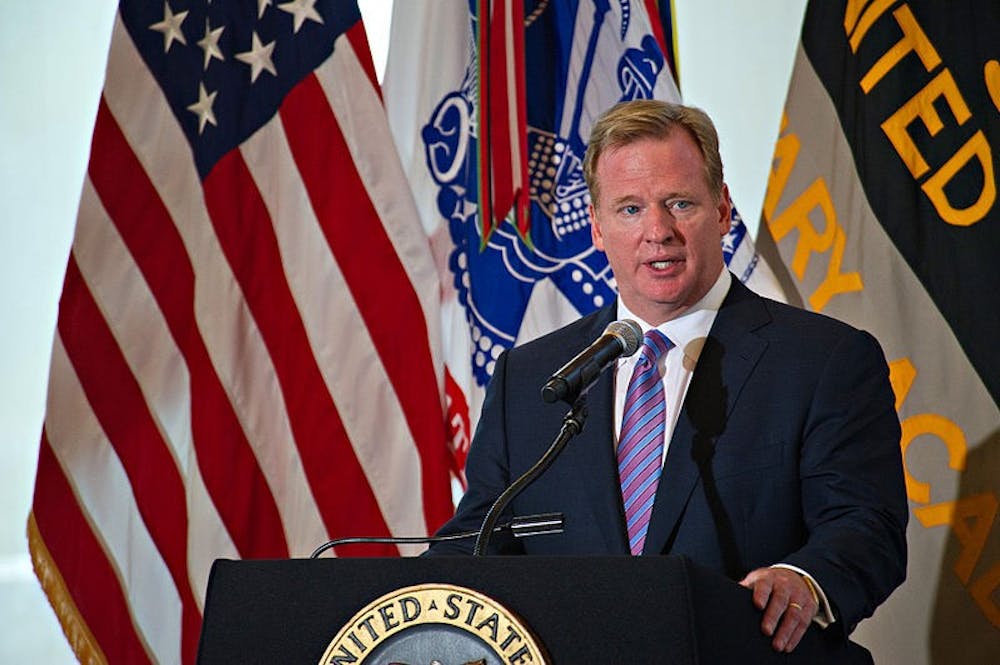
The National Football League (NFL) Collective Bargaining Agreement (CBA) is a once-every-10-years agreement between the NFL Players Association (NFLPA) and the NFL teams’ owners. To ratify the CBA, the NFLPA and the NFL work on a deal and then send it to the entirety of the players in the league for a simple majority vote.
The last time the CBA was up for renewal, the owners locked players out and eventually got a significantly better deal by shifting the revenue in their favor considerably. In that deal, their share shifted from 43 percent to 53 percent of the revenue.
The NFL and NFLPA have agreed to a new CBA, and the players are set to vote on it shortly. We do not have a full agreement publicly, but a large amount of it has been leaked to the media. The three biggest points are an additional 17th game during the regular season, a 14-team playoff format and a shift in the revenue sharing again.
The 17th regular season game is a major change. Please no. Injuries are already incredibly gruesome and this would only serve to increase injury rates.
Usually, the team that wins the Super Bowl does so as a result of both talent and luck. The reason a team has to be lucky is that they have to survive the season without being decimated by injuries. Just look at the 2013 Denver Broncos. If they had Von Miller for that Super Bowl, they might not have gotten blown out 43-8 by the Seattle Seahawks.
A 17th game also leads to the issue of half the league having more away games than home games. The NFL’s real goal is to eventually get to 18 games, which would just further the injury issue and lower the quality of football played in those games.
I give the 14-team playoff format an even harder no. The standard to make the playoffs should not be a .500 winning percentage. Average teams would begin to clutter the postseason. Additionally, only one team would get a bye week. This means the Super Bowl champions, the Kansas City Chiefs, would’ve been playing on wildcard weekend against the Pittsburgh Steelers, a team that would struggle to even keep the first quarter score close.
This generally discourages the best teams from playing as hard at the end of the season because there’s less of a chance of being given a bye. So, the NFL is trying to create more drama and excitement by adding these two extra teams and increasing the end of the season playoff hunt, but this would actually have the adverse effect of lowering the quality of play from their best teams.
Simply on principle, the playoffs are meant for better teams; a typical Jason Garrett 8-8 record should not grant a playoff spot.
The increased revenue clause is unexciting. No one watches football for the owners. That being said, owners own brands, and the NFL, unlike the NBA, is about teams, not players. But by no means are owners more valuable than all players as a whole. They should not receive more profits than the players, or even equal profts. Yes, the argument given the league gives is that they have the costs of stadiums, promotion, and blah blah blah. Players also have costs: agent costs, fitness costs, the costs of buying or renting a new house for every new team they go to.
So even though this CBA is increasing player revenue shares to 48.5 percent from 47 percent under the last CBA, it is still too small. In fact, players made 57 percent of the revenue in prior agreements. The argument that players are being compensated for the increased risk with more compensation is blasphemous as their shares have declined in the bigger picture.
Even though I clearly think this is a terrible deal, it will probably be passed. The incredible number of average NFL players will in all likelihood agree to the minimal increase in salary because of the extra game check received from that 17th game. And many of the players who will vote do not have the stomach to give up money to strike against a league as smart as the NFL, who, during the last lockout, made deals to rake in billions from TV networks even though no games were being played.
Simply put, the NFL has always thought steps ahead of the NFLPA and has far more leverage. Maybe that will change with insane growth to the XFL, but I doubt it. Players will likely be playing more games, and as a fan, I will be watching more watered-down content, and the — cue Bernie Sanders’ voice — billionaire owners will make even more money.

















